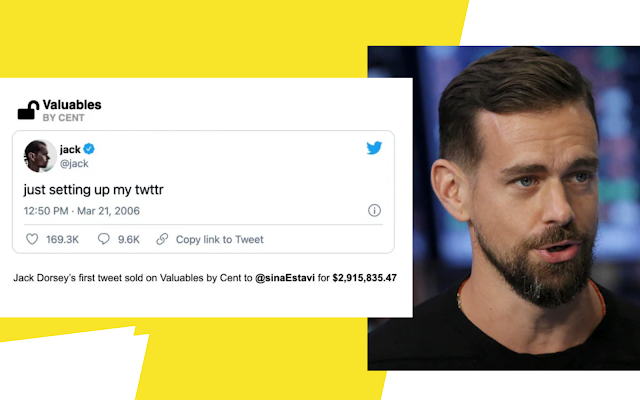NFT also known as Non-Fungible Tokens, has been explained as "each token offers unique and immutable properties to an owner, completely independent of other tokens." NFTs offers a space to discuss the values and abilities of digital assets which can not be copy-pasted.
 |
| What are NFTs? | Explained in detail |
What are NFTs basically? | The Tech-Freak
NFTs are crypto-assets representing real-world art, digital art, music, gifs, collectibles, videos, etc that are unique and contain digital tokens attached with them. Digital tokens are certificates of ownership of that particular asset. Basically, they work like cryptographic tokens but unlike Cryptocurrencies, they cannot be mutually interchangeable (hence non-fungible). NFTs are the evolution of the idea that we're just moving from one generation's form of currency to another. Cryptocurrencies and blockchain technologies allow for an expansion in what we call currency: now it doesn't just need to be finance, but any kind of value or data.
NFTs became technically possible when Ethereum extended support of NFTs on their platform. They are compatible with any Ethereum-supported platform. ERC-721 was the first standard (CryptoKitties) to represent the Non-Fungible Tokens on the Ethereum Blockchain. [ More on this later. ]
 |
| Twitter Owner Jack Dorsey sold his first tweet for $ 2.9 Million |
One of the most important points to remember about NFTs is that a token that has a value can likely fall into this category. In fact, many tokens have been built because the creator wanted to add a new feature. However, NFTs are not limited to just adding features, they can also be used for entirely new types of applications.
Importance of NFTs | The Tech-Freak
NFTs are quite important in the crypto sphere. Many major exchanges like Tidex, Binance, and Huobi allow customers to buy or sell NFTs on their platform. We see this growing adoption most evident in asset tokenization which is expected to grow by $3 billion by 2021. This highlights the importance of NFTs within the blockchain ecosystem and is the reason why we know that they will play an increasingly important role in our future financial systems.
NFT's a digital asset that is not subject to copying. NFTs are a prediction that "No one can copy what you own or take it from you." This idea is saying that if someone were to clone bitcoin, the clone doesn't have the same value. The same goes for art, land, or even an individual's identity, "unique information is subsequently inaccessible by any other individual." In other words, the ability of ownership over a piece of art will never be able to be transferred just like a physical painting can never be cloned.
Use cases of NFTs | The Tech-Freak
 |
This image, Hashmask 15753 (1 of 16,384) by "Suum Cuique Labs GmbH", sold with an NFT on the Ethereum blockchain. Future of NFTs | The Tech-Freak |
- Digital Arts
- Music & Video
- Collectibles
- Games
- Ticketing
- Memes
That's it for now. Thanks for reading. If you like to get updates on the latest technologies, subscribe to our Blog.
People are now taking interest in nft platform ,even celebrities announced that they signed to deal their things to sell on nft
ReplyDeleteVery Informative
ReplyDelete